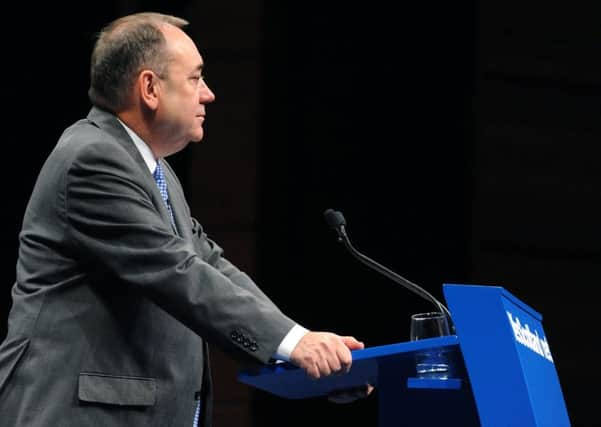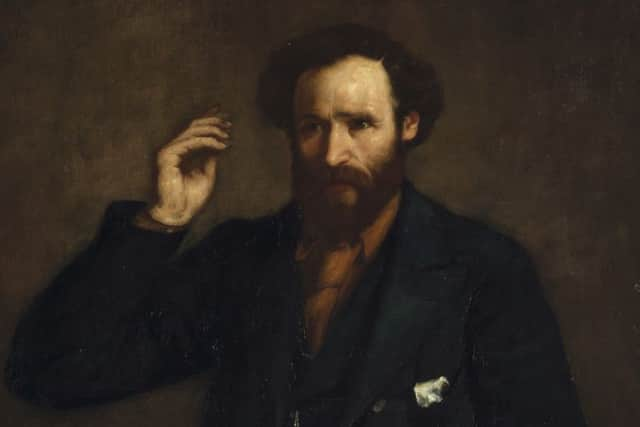Five of the best Westminster speeches by Scots MPs


From the monarchy to housing conditions, the men and women representing constituencies north of the border have never shied away from voicing their opinions - even if it risked upsetting their fellow party members.
Although the major focus of Scottish politics has switched from Westminster to Holyrood following the establishment of the Scottish Parliament in 1999, the House of Commons remains fertile ground for debate.
Advertisement
Hide AdAdvertisement
Hide Ad“Until relatively recently the House of Commons was the major platform for Scottish political oratory, and certainly until a few decades ago speeches made in that Chamber would be quite widely reported,” said David Torrance, a political journalist and editor of Great Scottish Speeches.


“Although political events have always turned on a number of factors, a good cogent speech can often have quite an impact, capturing the mood of the moment or changing the course of events. And although you might imagine social media would diminish the impact of oratory, I actually think the reverse is true: not only can a tweet contain the essence of a speech but it can also guide people towards the full text or recording of the speech itself, thus making speeches more accessible than ever before.”
KEIR HARDIE, 1894
Hardie became the first Labour MP in history when he won the West Ham South constituency in 1892. Born in Newhouse, North Lanarkshire, he rose from working as a miner to become a trade union official and eventually an independent labour candidate.
His first election caused a stir when he refused to wear the standard political uniform of the day - black frock coat, starched collar and silk top hat - and instead opted for a plain tweed suit with a deerstalker hat. Following a Welsh mining disaster in 1894 that killed 251 workers, Hardie asked the Commons authorities that a message of condolence to the relatives of the victims be added to an address of congratulations on the birth of the future Edward VIII.
The request was refused and Hardie responded with a speech attacking the monarchy. “From his childhood onward this boy will be surrounded by sycophants and flatterers by the score and will be taught to believe himself as of a superior creation,” he said. The speech was hugely controversial and is said to have contributed to Hardie losing his seat in 1895. He returned to parliament five years later as MP for Merthyr Tydfil.
JENNIE LEE, 1929
The daughter of a miner, Lochgelly-born Lee was working as a teacher when she was selected to fight the 1929 North Lanarkshire by-election for Labour aged 24. Her maiden speech ignored the convention of avoiding controversy and was a direct attack on Winston Churchill’s budget proposals, which she described as “a mixture of cant, corruption and incompetence.” The speech was well received, with Churchill himself offering his congratulations outside the chamber. She would lose her seat in 1931 but returned to the Commons in 1945 as MP for Cannock in Staffordshire, which she would represent until 1970. She was elevated to the House of Lords as Baroness Lee of Asheridge.
TOM JOHNSTON, 1943
Born in Kirkintilloch, the son of a grocer, Johnston was first elected in 1922 as Labour MP for West Stirlingshire. He would serve several constituencies, but by 1941 was so highly thought of by politicians across the spectrum of he was appointed Secretary of State for Scotland in Churchill’s war cabinet. He was responsible for encouraging dozens of firms to relocate north of the border as part of the war effort, and was a long standing supporter of Home Rule. A leading proponent of hydro-electric schemes - which he argued would bring jobs and prosperity to the Highlands - he attracted attention for a key note speech in 1943 when he laid bare the mounting housing crisis in Scotland. “Our housing situation is so desperate that we must examine every suggested cause of its inadequacy and every possible method of improvement,” he said.
ALEX SALMOND, 1988
Less a speech and more a disruption. The newly elected member for Banff and Buchan made headlines when he interrupted the then Chancellor the Exchequer, Nigel Lawson, as he made his budget speech in 1988. The Conservative MP was delivering his fifth budget in a speech that lasted 105 minutes, and there were many disruptions. But none made more of an impact than Salmond’s. “This is an obscenity. The Chancellor cannot do this,” he told Lawson, prompting a furious reaction from the Tory benches. A motion was swiftly passed ejecting Salmond from the House. Moments later, Labour MP Brian Wilson described it as a “cretinous performance” that “owed everything to self-publicity and nothing to social concern”. Regardless of his motivations, the disruption would help build Salmond’s reputation as someone unafraid to stand up to Westminster.
MHAIRI BLACK, 2015
Advertisement
Hide AdAdvertisement
Hide AdThe youngest MP elected at the 2015 General Election, Black won widespread acclaim for her maiden speech in which she praised the late Tony Benn and urged Labour to work with the SNP in opposition. It has since been viewed more than 10 million times online. In a sharp attack on cuts to housing benefits, she noted: “We are now in the ridiculous situation whereby because I am an MP not only am I the youngest, but I am also the only 20-year-old in the whole of the UK that the Chancellor is prepared to help with housing.”